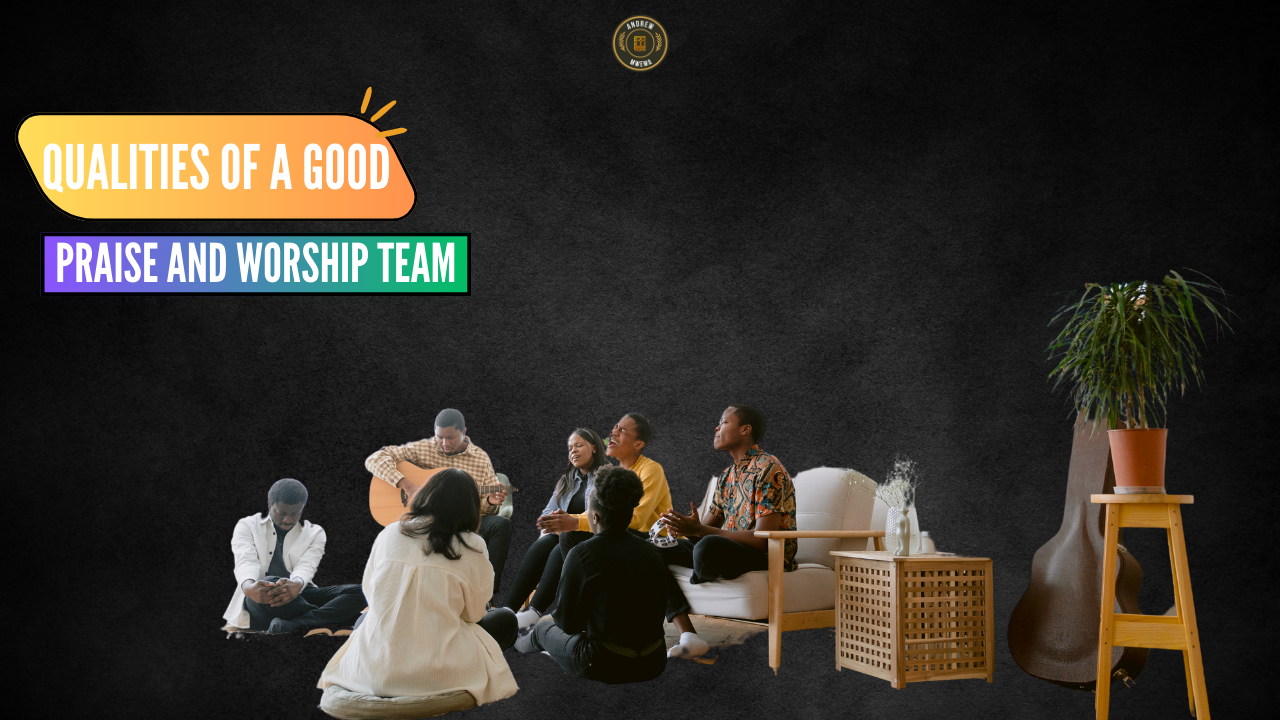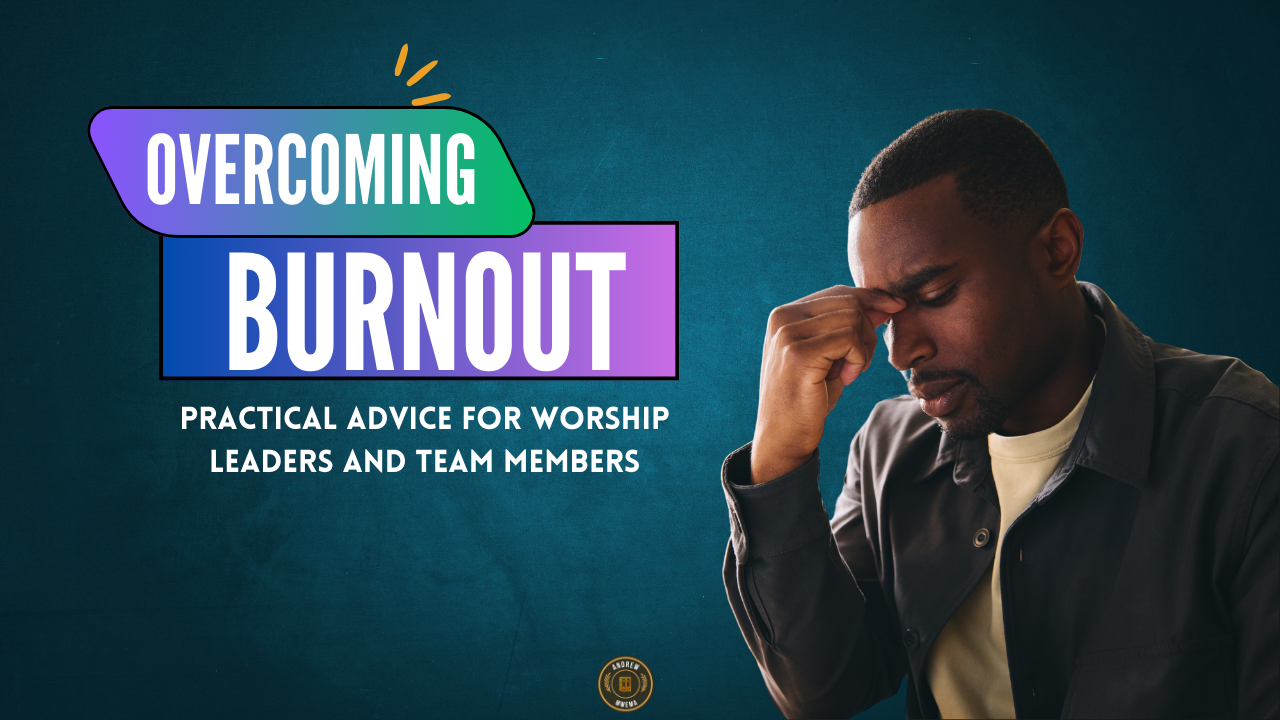How To Develop Rules For Praise And Worship Team
How To Develop Rules For Praise And Worship Team

Understanding The Purpose And Role Of A Praise And Worship Team
Understanding the purpose and role of a praise and worship team is essential for developing effective rules and guidelines that foster a cohesive and spiritually enriching environment. A praise and worship team primarily aims to lead the congregation in worship, facilitating a space where individuals can connect with God on a personal and communal level. This team is often composed of musicians, vocalists, and occasionally, technical personnel who use their talents to enhance the worship experience.
They serve as conduits for worship, aiming to create an atmosphere that enables the congregation to engage in authentic and heartfelt worship.
The role of the worship team extends beyond mere performance. It involves a deep commitment to spiritual growth, both individually and as a group. Members are often seen as spiritual leaders within the community, and their personal devotion and authenticity in their Christian walk can inspire others to deepen their own faith. Consequently, the team should prioritize fostering unity and mutual support among its members, promoting a spirit of humility and servant leadership.
Additionally, the praise and worship team carries the responsibility of being culturally sensitive and inclusive, recognizing the diverse backgrounds and preferences within the congregation. This includes selecting music that resonates with different age groups and ethnicities, thus enabling everyone to participate fully and joyously in worship. Innovation and flexibility are key, allowing the team to adapt to the changing needs of the congregation while staying true to the core values and traditions of their faith community.
By understanding the multifaceted role of a praise and worship team, leaders can establish guidelines that not only enhance the worship experience but also cultivate a spiritually nurturing environment that encourages both personal and collective growth in faith.
Establishing Core Values And Principles For The Team
Establishing core values and principles for a praise and worship team is foundational to its success and unity. These values act as guiding lights that ensure the team remains centered on its mission, fostering an environment where each member can thrive while serving a greater community purpose. The process begins by identifying the core purpose and vision of the team, often rooted in the church's mission to inspire and uplift the congregation through music and worship.
At the heart of these principles lies a commitment to spiritual integrity and authentic worship. This involves cultivating a personal relationship with God for each team member, ensuring that their participation in the team is an extension of their faith journey, not just a performance. Encouraging regular personal devotion and collective prayer helps in grounding the team's efforts in genuine spiritual expression.
Another fundamental value is teamwork and unity. The dynamics within the team should prioritize collaboration over competition, promoting an environment where each member feels valued and understood. Open communication, respect for diverse musical gifts, and mutual support are essential in building a cohesive unit. This unity extends beyond rehearsals and services, fostering relationships that are strong and supportive in various aspects of life.
Excellence, while not equating to perfection, is also a core value that drives the worship team. This involves dedicated preparation and a commitment to continuous improvement in musical skills and spiritual depth. The pursuit of excellence is less about flawless performance and more about giving one's best effort as an offering.
Lastly, a spirit of servanthood underpins all these values. Members of the praise and worship team should see their role as an opportunity to serve God and their congregation, prioritizing the collective worship experience above individual desires or recognition. By ingraining these core values and principles, the team can maintain focus and effectively lead others in meaningful worship.
Defining Roles And Responsibilities Within The Team
When developing rules for a praise and worship team, it is crucial to clearly define roles and responsibilities to ensure the team operates smoothly and effectively. Every member should understand their specific duties and how they contribute to the collective goal of leading a congregation in worship. This begins with the worship leader, who generally oversees the team’s plan and direction, sets the schedule, chooses songs that align with the service's theme, and ensures that practice sessions are purposeful and productive.
They act as a liaison between the team and church leadership, conveying the vision and expectations. Musicians, such as guitarists, keyboardists, drummers, and other instrumentalists, play a crucial role in providing the musical foundation. It is important they are proficient with their instruments, are prepared for rehearsals, and share a commitment to developing their skills. Singers must focus on vocal excellence, blending harmoniously, and, like musicians, they should be prepared to adapt to different styles and tempos.
Additionally, sound technicians handle the intricate task of balancing the sound in the worship space, ensuring that everyone can hear and engage with the music clearly. It's vital they communicate effectively with both the worship leader and musicians. Beyond music and technical roles, someone may be appointed to handle administrative tasks, like managing song licenses, scheduling team members, or organizing special events.
Having these established roles assures that everyone knows their responsibilities, network freely, and respects each other's contributions. Recognizing and valuing each person's unique role fosters a cooperative environment, where the focus remains on a cohesive worship experience that uplifts the entire congregation. Through understanding and fulfilling these roles, the team can create a harmonious and spiritually enriching atmosphere.
Setting Guidelines For Musical And Spiritual Preparation
In the process of developing rules for a praise and worship team, setting guidelines for musical and spiritual preparation is pivotal in cultivating an environment conducive to both artistic excellence and spiritual depth. Musical preparation involves ensuring that each team member is proficient in their respective instrument or vocal role. This includes regular practice sessions both individually and collectively. Musicians and vocalists should be familiar with the repertoire, able to play or sing challenging pieces with confidence, and possess a working knowledge of music theory to facilitate smooth transitions, harmonization, and improvisations during live situations.
Assigning parts, rehearsing transitions, and discussing arrangements are essential, allowing members to anticipate changes and understand the flow of worship sessions. Importantly, practicing with intentionality and a focus on the technical details ensures that the team can perform with a level of precision and freedom, allowing them to lead the congregation in a powerful worship experience.
Spiritual preparation is equally essential and underpins the musical aspect. This involves personal spiritual discipline, such as regular prayer, scripture reading, and reflection. Members should engage in spiritual check-ins, emphasizing the importance of maintaining a heart posture aligned with the purpose of leading worship. Coming together for team devotions or prayer before practice and performances can help bind the group spiritually and maintain focus on the ultimate goal of glorifying God and edifying the congregation.
Emphasizing humility, accountability, and unity, and recognizing the role of the Holy Spirit in worship, encourages a spirit of cooperation and servitude, ensuring that each worship session is not just a musical performance but a meaningful encounter with the divine. By nurturing both musical skill and spiritual growth, the team can effectively lead others into sincere worship.
Creating A Code Of Conduct For Rehearsals And Performances
Creating a code of conduct for rehearsals and performances is essential in establishing a disciplined yet creative environment for a praise and worship team. To begin with, it is crucial to establish clear expectations regarding punctuality and attendance. Members should understand the importance of arriving on time for rehearsals and performances, as timely attendance is critical for efficient practice sessions and ensures that everyone is on the same page.
Communicating beforehand about any absences allows for adjustments in roles and parts, minimizing disruptions.
Respect and professionalism should be the cornerstone of all interactions within the team. Members are encouraged to listen actively to one another, provide constructive feedback, and handle disagreements with grace and maturity. The language used should be uplifting, aiming to build each other up while fostering a spirit of camaraderie. It's important to incorporate guidelines around individual and collective preparation for rehearsals.
Members should be expected to come prepared with their parts learned, which maximizes rehearsal time and enhances the quality of performances. This preparation is a demonstration of commitment not only to the team but also to the ministry of worship.
Dress codes can be considered for both rehearsals and performances to ensure modesty and appropriateness, aligning with the church’s values and the overall mission of the worship team. Furthermore, the code of conduct should emphasize the significance of spiritual readiness. Members are encouraged to engage in personal prayer and devotion, aligning their hearts with the worship team’s purpose.
Lastly, the code of conduct should outline the processes for resolving conflicts and the consequences for violating the established guidelines.
These procedures ensure that the team remains a healthy, welcoming, and effective unit dedicated to facilitating inspiring worship experiences.
Developing A System For Regular Feedback And Improvement
Developing a system for regular feedback and improvement is essential in fostering a dynamic and effective praise and worship team. This system should be structured to promote open communication, encourage personal growth, and enhance the overall performance of the group. At the heart of this process is the establishment of a culture that values feedback as a positive and constructive tool for development.
To begin with, it is important to create an environment where team members feel safe to express their thoughts and opinions. This can be achieved by ensuring all feedback is given in a respectful and encouraging manner, focusing on specific actions and outcomes rather than personal attributes. Scheduling regular feedback sessions is crucial, whether they occur weekly, biweekly, or monthly. These sessions provide a dedicated time for the team to discuss what is working well and identify areas for improvement.
Incorporating a mix of group discussions and one-on-one meetings allows for a more comprehensive understanding of each member's experiences and perspectives. Constructive criticism should be balanced with positive reinforcement to maintain morale and motivation. One effective approach is the use of self-assessment tools alongside peer evaluations. This method allows team members to reflect on their personal contributions while also considering the feedback from their colleagues.
Encouraging members to set individual and collective goals based on feedback sessions can drive personal and group growth. Moreover, inviting external evaluators, such as experienced musicians or worship leaders from other communities, can provide fresh insights and objective assessments. Finally, it is essential to review and adjust the feedback system periodically. As the team evolves, so too should the methods used to assess and improve its effectiveness, ensuring that the praise and worship team remains vibrant, cohesive, and inspired in their ministry.
Encouraging Team Unity And Spiritual Growth
Encouraging team unity and spiritual growth within a praise and worship team is essential for creating both a harmonious environment and impactful worship experiences. At the core of fostering unity is a shared vision of the worship ministry's purpose, which underscores the significance of glorifying God through music and leading the congregation in an authentic and meaningful encounter with Him. Cultivating an atmosphere where each team member feels valued and appreciated starts with open communication.
Regular meetings, not just for practice, but for sharing personal spiritual journeys, challenges, and victories, help to build trust and deepen relationships.
Prayer is a powerful tool in this process. Encouraging the team to pray together regularly not only invites God into the center of their endeavors but also aligns their hearts and minds toward a common goal. Praying for one another, interceding for each other’s personal and spiritual needs, can strengthen the bond between team members and nurture a supportive community. Providing opportunities for spiritual growth is also essential.
This can be achieved through shared devotional times, attending worship conferences, or engaging in Bible studies tailored specifically for those involved in worship ministry.
Fostering a culture of accountability within the team, where members encourage and assist each other in their spiritual walks, can also enhance unity. Encouraging mentorship and discipling relationships within the team can promote personal and collective spiritual development. Moreover, celebrating achievements and milestones together, whether musical, personal, or spiritual, reinforces a sense of belonging and commitment.
When you create an environment where each person is motivated to grow both spiritually and musically, the team not only becomes more united but also more effective in their ministry, leading to more profound and moving worship experiences for the entire congregation.
5 Steps to Building a Strong Worship Team
5 Steps to Building a Strong Worship Team provides worship leaders with a clear roadmap to recruit the right people, establish a prayerful and collaborative culture, and lead a unified team. With practical strategies, interactive exercises, and downloadable resources, you’ll learn how to create a worship team that glorifies God and serves your congregation with excellence. Whether you’re starting a team from scratch or strengthening an existing one, this course will inspire and equip you for success
(It's free)
Imagine having everything you need at your fingertips to build, maintain, and supercharge a thriving worship ministry—well, that's exactly what the Complete Worship Ministry Resource Pack delivers! This all-in-one toolkit is your secret weapon, designed specifically for Worship Pastors, Music Directors, and worship teams who are ready to take their ministry to the next level.
Packed with guides, templates, and tools, this comprehensive package covers every aspect of your worship ministry. Whether you're focused on team building, nailing rehearsal planning, or deepening spiritual growth, we've got you covered. From handling crisis management like a pro to ensuring your tech setup is flawless, this resource pack is your go-to solution for creating a worship experience that truly resonates.
Get ready to elevate your ministry and lead with confidence, knowing you have everything you need to inspire and engage your team and congregation!



















